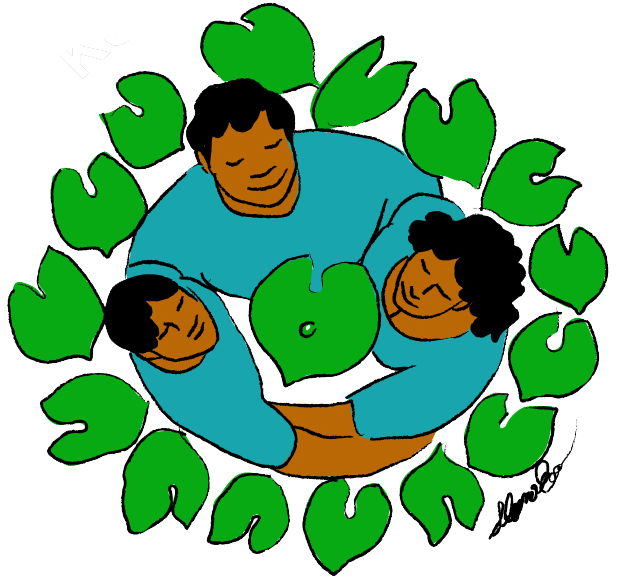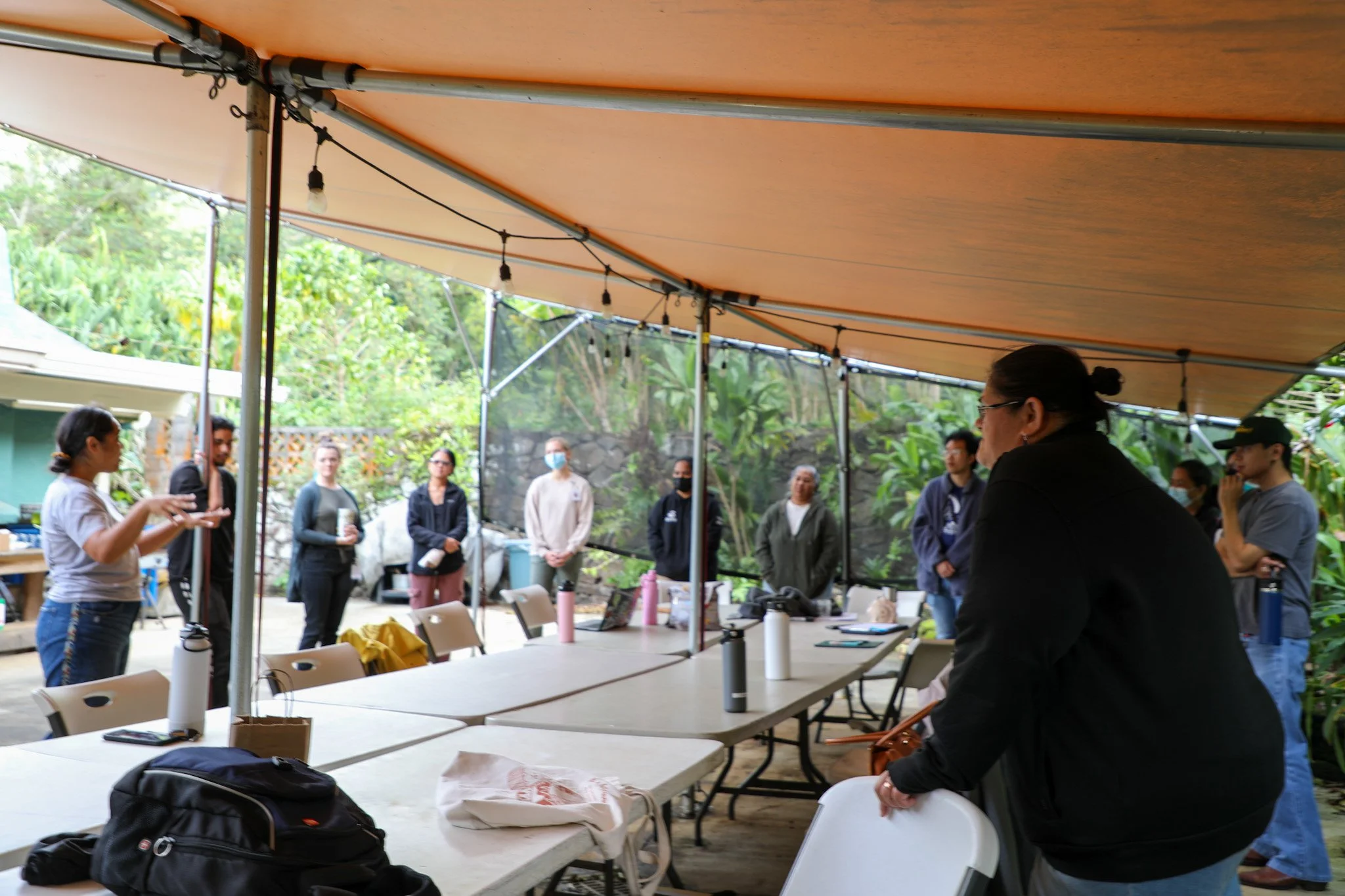An Indigenous Framework for Health
A Pathways Cohort participate in a Pilinahā training lead by Bernice Musrasrik (OVC Coordinator).
As KKV strides through this new year, we reflect on how we strive toward a healthier Kalihi. A framework that KKV upholds is Pilinahā, also called the Four Connections Framework. Pilina means “connection” or “relationship.” “Hā” comes from “ʻehā” and “hā,” meaning “4” and “breath of life.” Pilinahā emphasizes four main connections in order to feel whole and healthy. Connections to place, one’s better self, community, and past and future are vital to KKV.
“As a fuller alternative than viewing health as a list symptoms in an individual, KKV approaches health as wholeness and inclusivity in community.”
Designed by Puni Jackson (Hoʻoulu ʻĀina Program Director) the hoaka is a visual representation of the Pilinahā framework .
Bernice leads the group through a Pilinahā exercise.
A team of KKV staff including Kaʻiulani Odom, Puni Jackson and Dr. David Derauf, shaped the idea of Pilinahā. It is now incorporated into the training of every staff member. In Pathways, KKV’s onboarding program, Pilinahā is a main topic that fills a whole session at Hoʻoulu ʻĀina. The recent session was led by Bernice Musrasrik, KKV’s Optimizing Virtual Care (OVC) Project Coordinator, and the group’s knowledge of Pilinahā was varied. While some staff members were familiar with the framework, others found it completely new to them.
The method of Pilinahā is rooted in listening to manaʻo (thoughts, ideas, knowledge, and opinions). Through Pathways, staff members were able to share more of their stories and their vulnerabilities. The main question Pilinahā asks is, “When was the last time you felt the healthiest or strongest?” Having an open ear, KKV staff were able to discover the connections that were formed, broken, and repaired throughout the years. Discussing Pilinahā brings out many emotions, and participants often shed tears during moments of reflection. Whether it be serving in church, through pregnancy, returning to a home country, or even in the present, everyone can recall a time when they felt strong. Pilinahā seeks to expand the view on what health means by strengthening the four connections and understanding that they cannot be separated.
The main takeaway from the Pilinahā training is that health has a direct link to feeling connected. As a fuller alternative than viewing health as a list symptoms in an individual, KKV approaches health as wholeness and inclusivity in community. Being connected to food, respecting the past, and becoming a better person for our lāhui (nation) are all parts of this larger framework for health. Today, KKV uses the hoaka, a crescent moon in a bowl shape that signifies abundance, to visualize the Pilinahā framework and uses Pilinahā to assess every program, making a point to move intentionally to a fuller view of wellbeing.







